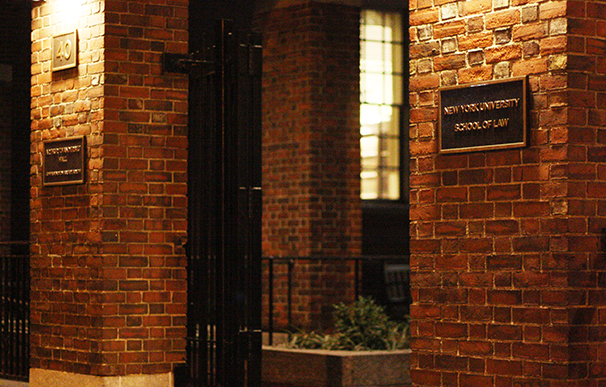
In his 2014 State of the Judiciary address, New York’s Chief Judge Jonathan Lippman announced the Pro Bono Scholars Program, which allows third-year law students to take New York’s bar exam during the February of their spring semester instead of the July after graduation. In exchange, students must serve the state’s poorer citizens through pro bono collaboration with a law firm, corporation or service provider. Pro bono collaboration means students are unpaid, but the exchange will fulfill academic requirements through curriculum integration in New York’s 15 law schools.
Facing the lowest number of first-year applicants since 1977, law schools across the country are adapting their curricula to fit current economic realities.
“We know that the landscape for legal education and legal employment is undergoing major structural change across the nation,” Lippman said in his address. “Rather than discarding the third year of law school, why not give law students choices that can make all three years of law school more meaningful and worthwhile?”
In response to these challenges, Lippman and New York’s courts developed a program that provides valuable experiential learning and confronts the state’s problem of under representing poor defendants.
Trevor Morrison, dean of NYU School of Law, said he applauds Lippman’s efforts.
“Chief Judge Lippman is widely and justly admired as a leader in the effort to see that legal services are available to underserved populations,” Morrison said.
NYU Law, a school known for its emphasis on public service, is now in the process of meeting the implementation standards set by the committee.
“One of our top priorities will be to ensure that our implementation of this program is consistent with the rigorous academic standards that characterize all of our offerings at NYU Law,” Morrison said. “We will strive to [ensure] that the work our students perform is of the quality and type that meets the needs of the clients they serve.”
Even though his class is not eligible, Andrew Neidhardt, a third-year student at the law school, said he would be glad to have this opportunity.
“It’s becoming increasingly clear to the legal profession that students are ready to begin their careers earlier than the traditional time frame allows,” Neidhardt said. “I am eager to begin practicing law after five semesters in the classroom.”
In addition to accelerating job placement and work experience, Neidhardt said the program provides an avenue for concerned young law students to assist the state’s public-interest organizations in aiding the poor.
“I know enough to understand that we are in a crisis of underfunding and mass incarceration,” he said. “I imagine that innovative legal aid offices would be able to find ways to train new lawyers to help with their caseload. If your goal is to help others, this program makes it easier to do that sooner.”
A version of this article appeared in the Wednesday, Feb. 26 print edition. Andrew Spohn is a staff writer. Email him at [email protected].






















































































































































